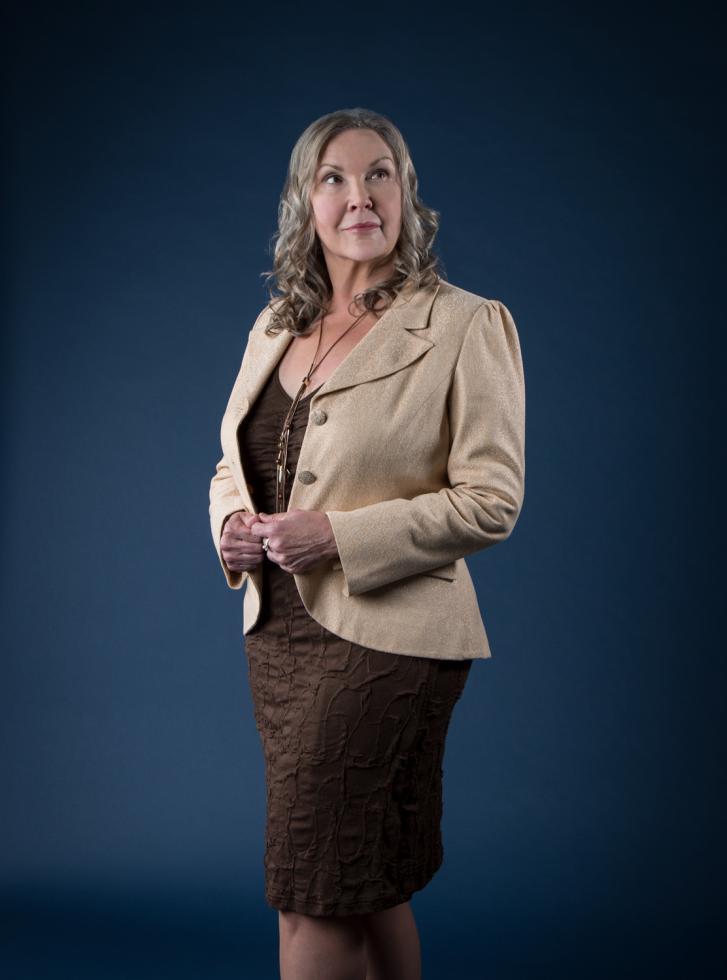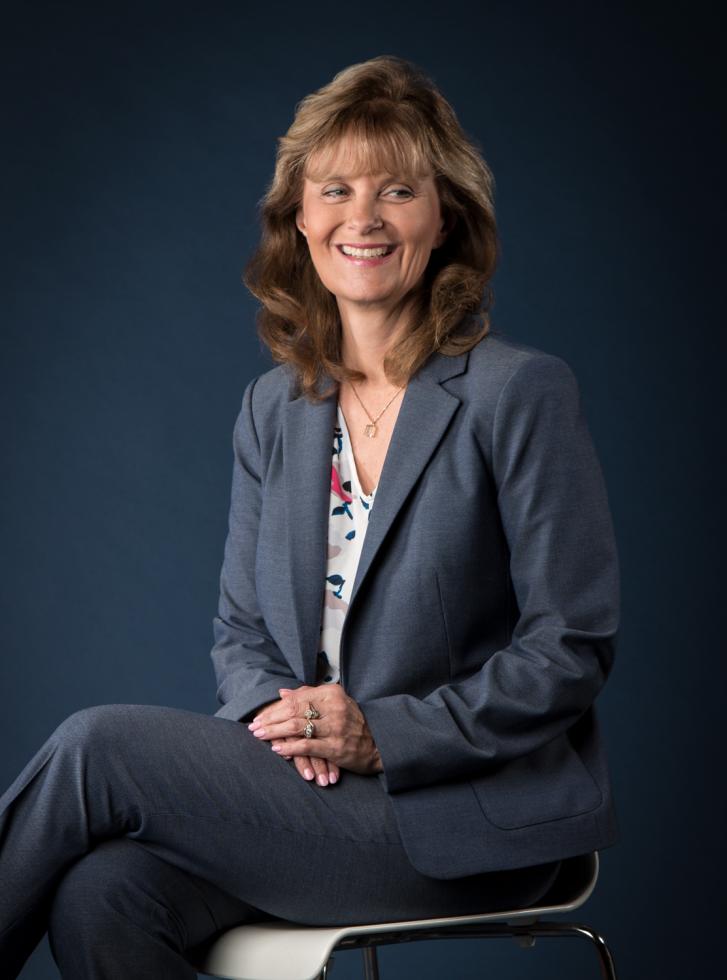We’re highlighting six of the Capital Region’s most influential female leaders who are blazing trails in their respective industries.
* * *
Amitis Pourarian
Owner, The STUDIO Martial Arts & Fitness
Never one for team sports, Amitis Pourarian says when a family friend introduced her to taekwondo in junior high, it was love at first kick.
“I really gravitated toward it because no one had to pass you the ball to be a part of something,” Pourarian says. “Everything is within your control.”
Working her way through the ranks, she says she fought men all of the time; when the ladies only had to break one board to the men’s two, Pourarian broke two. However high the bar could be set, that’s where she wanted it.
She credits her parents for instilling this belief in her own strength. Pourarian was five when they moved her and her elder sister out of Iran, following the revolution that saw women’s freedoms stripped by an extremist government — and just before Pourarian’s mother gave birth to a third daughter. She remembers them working tirelessly to learn the language and grow a business.
“All three of my sisters, we were given an opportunity, the liberty to be as successful as we want to be here in the United States,” she says. “We don’t take that for granted — we know what it would have been like if we’d stayed.”
Now, Pourarian is a seventh-degree black belt and the highest-ranking woman in the United World Taekwondo Association. In 2000, she made the U.S. national taekwondo team and represented at the World Cup. Last October, 20 of her students earned national titles at the UWTA Grand National Championships. During a 2016 trip to Korea, Pourarian was recognized by the president of Kukkiwon, the official taekwondo organization established by the South Korean government, for her contributions to the sport.
Related: Amitis Pourarian on the changes in the martial arts industry
Related: Related: Women’s Work
But she hadn’t always planned to build a career around her athleticism. After earning her master’s degree in construction management and civil and environmental engineering from Stanford, she worked in construction and real estate, teaching taekwondo on the side.
In 2010, she opened The STUDIO Martial Arts and Fitness, now in Roseville. Pourarian didn’t grow her business through a multifaceted marketing strategy, and says that through word of mouth her business grew exponentially.
Today, The Studio has 900 active members. Taekwondo is offered to children as young as three, and mixed adult classes are supplemented with those for moms, dads and seniors. There’s also classes in self-defense, kickboxing and general fitness, all of which incorporate martial arts training. And while the segregated classes create a more comfortable learning environment, when it comes to competition, girls fight boys and women fight men.
“Particularly to girls and women, I really want to instill in them that there is no boundary or barrier,” she says, adding, “I don’t care if you are a housewife or a professional career woman — you aren’t less than anyone else.”
Katie Walker, Pourarian’s chief of operations and an instructor, says Pourarian has been essential to her professional growth, encouraging her to explore new fitness concepts and methods and craft her own classes, even helping to prepare Walker to someday branch out on her own.
“She’s feeding me what I need and she’s empowering me beyond anything I ever imagined,” Walker says.
As for what’s next for Pourarian, she says she’d like to head a national branding campaign, in partnership with martial artists from around the country, to upend age and gender stigmas around — and promote the physical and mental benefits of — martial arts.
“I want to launch it with me breaking seven cement blocks and saying, ‘Yeah, I hit like a girl.’”
* * *
Donna DeMartino
CEO, San Joaquin Regional Transit
The transit industry is male-dominated. Roughly, a mere 20 percent of people working in the sector are women. Yet at San Joaquin Regional Transit District, where Donna DeMartino is the first CEO in the agency’s history, that number is closer to 50 percent.
There are a lot of reasons this matters, but for DeMartino, it’s about offering the opportunity for a sustainable career.
“These are really good-paying jobs,” she says. “Our bus operators, within two years can get up to $25 an hour, and all you need is a high school diploma or your GED. We do all of the training.”
This hits close to home for a woman who started her transit career as a bus operator. Back in 1986, after an ugly divorce, DeMartino found herself a single mom supporting six children. An elementary school teacher by day, DeMartino took a part-time job at Sacramento Regional Transit.
Related: Donna DeMartino on the future of regional transit
Related: She Who Leads
“I’d pull out on a bus at 4 a.m., I was doing two round trips in the morning, going to work to teach school in the middle of the day and then doing two round trips in the evening,” she says.
That decision changed DeMartino’s life. When a position opened up on the light rail project, she says she applied “on a whim,” and got the job.
She worked along the startup team that selected the first trains, drove them and trained operators. She’d go on to work in a variety of capacities at SacRT, in both operations and management as well as engineering and construction.
When a position opened up as assistant general manager in San Joaquin and having spent her career working with rail, DeMartino decided to give buses a try. Nine months after she started and just a week after the 9/11 attacks on the World Trade Center in 2001, her boss died unexpectedly from a brain aneurysm.
DeMartino says she never intended to be top dog, but with the board’s encouragement she took the position on permanently. Since then, RTD has enhanced services despite funding cuts. By transitioning from neighborhood routes to a bus rapid transit system, DeMartino says that some lines have gone from serving 5-10 customers an hour to more than 70. They’ve expanded the size of the BRT buses, and built out their ADA Hopper route from individual trips to a fixed deviated route, enabling it to serve more customers per trip. RTD’s downtown, Hammer Triangle and Regional transit centers were all funded primarily through government grants. Last year, SJRTD launched the nation’s first bus rapid transit corridor to be served exclusively by all-electric buses and it’s looking to launch two more BRT corridors this year.
“We don’t want to be on the bleeding edge but we like to pay attention,” DeMartino says.
While she laughs when asked to describe her leadership style, tossing out adjectives like “tough” and “relentless,” she’s also turned her attention to employee wellness, putting a portion of funds from the sale of old diesel buses into an employee wellness center, implementing family-friendly policies and encouraging leadership training that allows top performers a path of upward mobility.
“Our job, I think, as leaders is to make sure the people who work for us have all the tools and resources and training they need to do their jobs well,” she says. “We have to take care of our employees if we expect to take care of our customers.
* * *
Louise Walker
President and CEO, First Northern Bank
Small business is in Louise Walker’s bones. Her first job, which she started at 14, was in her mother’s bakery. Then, just out of high school, she landed a job as a teller at First Northern Bank’s Davis location. At the time, Davis was the third branch of the small community bank, which had nearly $51 million in cumulative assets and room for growth.
Thirty-nine years later, Walker’s at the helm of First Northern, headquartered in Dixon, as president and CEO since 2011. She’s helped grow the bank to 10 branches and $1.2 billion in assets, but remains committed to its humble roots — which began in 1910, when farmers who opened the bank held their first meeting at the Dixon Alfalfa Land Company.
As opportunities at the bank arose, Walker moved through positions with increasing responsibility as she attended Saint Mary’s College at night and ultimately earned a degree in management — making her the first person in her family to graduate college.
In 1986, as central operations manager, she led the colossal undertaking of bringing the bank’s data processing in-house, then in 2000, as chief financial officer, she helped take the company public. Walker has watched First Northern expand beyond agriculture and into health care, clean energy, advanced manufacturing and nonprofits.
She attributes the bank’s growth to its relationships with existing customers. Walker says managers and lenders at First Northern typically have over 20 years of experience — four times the industry average — with in-depth knowledge of the specific industries and businesses they serve.
Under her leadership, profits have steadily grown annually following the Great Recession. In January 2018, First Northern reported near record earnings for 2017 year-end, increasing assets by $51 million, deposits by $41 million and loans by $67 million over the previous year.
Walker is committed to economic development throughout the region, serving on boards for Valley Vision, Roseville Community Development Corporation, American Bankers Association and Solano Economic Development Corporation. She also has an eye turned to the younger generations. In 2012, First Northern began an initiative to bring interactive financial literacy education — the First Northern Bank Financial Scholars Program — to local high schools, resulting in more than 1,600 students in Solano County having completed the program.
“Some students didn’t know the difference between a debit and credit card. They didn’t realize how expensive payday loans were,” Walker says, adding that often students will pass along what they learn to their families. “If we’re able to provide financial literacy at younger ages, it would be a good thing for individuals and the community.”
She’s also an obvious advocate for alleviating regulations meant to rein in Wall Street banks that financially hurt community banks — like mortgage loans she describes as so complex they’re impractical and commercial lending regulations that harm small businesses. “You’re seeing a lot of merger and acquisition for smaller banks, which is unfortunate for the communities, because it takes away choice for customers,” she says.
She never imagined she’d be meeting with high officials, senators and congress members in Washington, D.C. “Those kinds of things you go, ‘How is this even possible?’ But I guess what that means is anything is possible.”
* * *
Carmela Castellano-Garcia
President and CEO, California Primary Care Association
Carmela Castellano-Garcia was only three years out of Yale Law School when the board of Public Advocates, the law firm where she worked, decided to part ways with the firm’s founding partners. She was left with two other attorneys, also just out of school, and a board who believed in her.
“All of a sudden it was a ‘sink or swim’ opportunity — you either take over the firm, or …” she says, trailing off. “It wasn’t even a question. We just did it.”
As managing attorney with the firm, she learned how to oversee its finances, funding and organization. Castellano-Garcia realized how much she enjoyed organizational management, and says these valuable skills have enabled her to succeed as CEO of the California Primary Care Association where she represents the interests of more than 1,300 nonprofit community health centers in California — and the 6.5 million predominantly low-income Californians they serve.
While her parents were from the working class, Castellano-Garcia grew up in privileged West San Jose. A professional dancer, she was exposed through Mexican folk dance to the disparity of opportunity in East San Jose, where the majority of the city’s Mexican-Americans lived. She says her school, where she was one of very few Latinas, offered advanced classes and educational resources she saw lacking on the other side of town.
Related: Carmela Castellano-Garcia on the impact of Affordable Care Act reform
“That kind of fueled in me a desire to want to address the inequity and take advantage of the opportunity I was getting at my country club high school,” she says. “I knew I was getting a great education. My parents were emphasizing that with me. They knew that was important and that’s why they moved here.”
The experience is part of what motivated Castellano-Garcia to launch the Latino Coalition for a Healthy California in 1992, bringing the Latino voice to the health care discussion. The coalition would go on to develop cultural linguistic standards for health care providers that lay the groundwork for California’s cultural competency policy. Through the CPCA, she’s also overseen efforts to enhance access to health care by providing enrollment services at these clinics.
Ahead, CPCA is looking to strengthen its efforts to address the predicted shortage of primary care physicians in California, while building a workforce that represents the population it serves. Latinos make up nearly 40 percent of California’s population, but only 4 percent of its doctors, Castellano-Garcia says. Working with other health care organizations and educational programs, CPCA provides internships and mentoring to students interested in pursuing careers in the industry.
As a leader, she says she’s proud of the strong organization she’s built from four to 50 employees and that an important part of her professional future involves mentoring young women, particularly those of color, as the next leaders in health care.
“I think it’s very helpful for me to be in front of those particular young women because they see a woman of color who is a CEO and maybe for the first time think of themselves in that role,” she says. “What I’m attempting to do is get it out there for young women to see the possibilities.”
* * *
Kristina Thompson
Chief Deputy, Sacramento Probation Department
It’s been a busy year for Kristina Thompson, chief deputy of adult field services at the Sacramento County Probation Department and the county’s highest-ranking African American woman in law enforcement. Like many agencies, the probation department has seen a massive transition in leadership, with 40 percent of its supervisors being promoted to their positions in 2017. Overall, 100 officers were sworn in last year alone, many of them whom she was instrumental in training. Chief Lee Seale credits Thompson’s mentorship skills as critical to keeping all of the department’s officers, not just the 70 she directly oversees, safe.
“She’s someone that I would want to mold myself after,” says Matthew Mitchell, a supervising probation officer who works under Thompson. He still remembers being new to the department and Thompson taking the time to help him develop a system for managing his caseload. He says he models his leadership style after hers. “She’s always made me want to do a better job for her,” he says. “And that’s how I would like to be viewed, how I would like to get people to produce.”
That thoughtful approach didn’t always garner Thompson praise. Back in the late ’80s, as one of very few African American women with the Sacramento Police Department, she says she encountered sexism and racism, and was belittled by supervisors for the way she approached her job, particularly her approach toward using force.
“I wouldn’t have gotten through the police academy if I had not been able to use force, and trust me, in my career I’ve been in plenty of fights with men twice my size, but if you can get someone to do what you need verbally then there’s no problem with that,” she says, adding that “it was looked at negatively” by her superiors, “like ‘You’re not forceful enough.’”
Related: Kristina Thompson on how to better address offenders’ needs
Thompson left the police department after just two years, and eventually worked her way up the ranks with the probation department. She says probation officers serve a unique and important, though often misunderstood, purpose in law enforcement. Typically, they know an offender’s family and background. They serve as a resource for job training and other supportive services, but also have the authority to send an offender back to jail for violating conditions.
“Our responsibility as a probation officer is to turn [offenders] into productive citizens, so we’re here to help,” Thompson says.
Thompson says she has a lot to give. In addition to grooming the probation department’s next generation of leaders during office hours, she co-founded the Sacramento Coalition of Minority Probation Officers, which connects minority probation officers to mentors. She says that, when she left the police department all those years ago, it was despite pleas from her peers to persevere and “pave a path.” She says that at 22, she wasn’t mature enough to do so. “That always stuck with me,” she says, and hopes to continue working with the department in a mentorship capacity long after she retires.
“I don’t want other minority females to go through what I went through,” Thompson says. “I have a lot to pass on, a lot of wisdom to give and that’s what I’m here for.”
* * *
Molly Weber
COO, The Urban Hive
Molly Weber sees vulnerability as a strength — a fundamental principle she encourages among the 300 members at The Urban Hive coworking space in Sacramento, which she co-founded with husband, Brandon.
It’s an unlikely maxim for Weber, a self-described introvert. She prefers to remain behind the scenes, often deferring the spotlight to Brandon (whom she describes as a gregarious strategic visionary) while she focuses on fostering community among the 3,000-4,000 members, clients and visitors who visit the Hive each month.
According to Weber, vulnerability creates opportunities to make genuine connections with others, which leads to collaboration, innovation and growth. But for Weber, the commitment goes deeper. She credits the Hive’s community for helping her through the near-death of her 11-year-old son when he was diagnosed with Type 1 diabetes in 2014, as well as the death of her mother two years later. She says the experiences illuminated for her not only how much she needed the Hive, but also drove her to be more engaged in protecting and enhancing the community that enabled it to thrive.
“Whatever you’re doing, if you don’t have passion for it, your drive is very short,” Weber says. “You have to love what you do and if you’re involved with people, you have to love them and it has to be from a place that is authentic and real and raw.”
Being vulnerable made Weber a more confident leader, and she believes it makes her members stronger too — exposing them to new connections, fresh ideas and valuable resources. She says the Hive’s diverse membership offers a pool of motivated entrepreneurs, startups and small businesses, all with a wealth of expertise and a willingness to share. When a new member joins, she strategically selects 3-5 people in the space to connect them with, fostering the Hive’s signature synergy.
“This is a workplace, but we expect you to close your laptop and put your hand [out] and introduce yourself,” Weber says.
That attention to detail and investment in member satisfaction ultimately translates into increased productivity and revenue for members. Private offices for teams at its new 13,600-square-foot location at the Libby Cannery in East Sacramento sold out in two weeks. Larger teams remain at the Hive’s original Midtown location as an additional 19,000 square feet undergo renovation at the Cannery. The space has capacity to provide team offices for companies up to 30 employees.
Weber is also COO of I/O Labs, a natural extension of the Hive for companies that outgrow its space and resources as well as other growing startups from throughout the region. Located in downtown Sacramento, an initial 18,000 square feet will house venture capitalists, entrepreneurs, startups and an incubator program. I/O Labs has begun moving companies in and plans to officially open the first half of 2018.
While cultivating an entrepreneurial community of diverse personalities is not without its challenges, Weber tries to stay connected to her human touch, realizing the unique value it has in atmospheres where it’s stereotypically lacking.
“My voice needs to be heard and I do have something to contribute. As much as tech is amazing, the interpersonal connection is way more important.”
Recommended For You

Be Your Own Champion
In leadership, critique itself matters less than what you do with it.

Girls Who Take Risks become Women Who Lead
More than half of U.S. business women, 80 percent of all female tech leaders, the majority of female legislators and nearly every female astronaut got their start in Girl Scouts.










Comments
I love the article on Kristina Thompson. She is highly respected and a wonderful mentor/role model to have. I've had the pleasure of working with her. She is very passionate about sharing her knowledge and wisdom to all who are looking to promote.
Brilliant, encouraging and future-vision article and video.
As a solo-woman entrepreneur Founder and Producer of Lucre's Wine World with over 25,000 followers in all my social media channels, I know the positive impact when we make our voices heard.
www.facebook.com/lucreswineworld
I agree that vulnerability creates opportunities to make genuine connections with others, leading to innovation and growth.
Getting completely out of our comfort-zones is the most challenging, painful yet vigorous and rewarding experiences man kind can have.
Humbly grateful,
Lucre
https://www.linkedin.com/in/an...
Brilliant, encouraging and future-vision article and video.
As a solo-woman entrepreneur Founder and Producer of Lucre's Wine World with over 25,000 followers in all my social media channels, I know the positive impact when we make our voices heard.
www.facebook.com/lucreswineworld
I agree that vulnerability creates opportunities to make genuine connections with others, leading to innovation and growth.
Getting completely out of our comfort-zones is the most challenging, painful yet vigorous and rewarding experiences man kind can have.
Humbly grateful,
Lucre
https://www.linkedin.com/in/an...